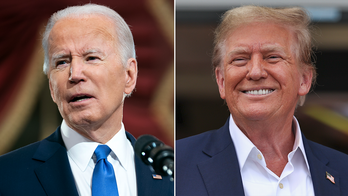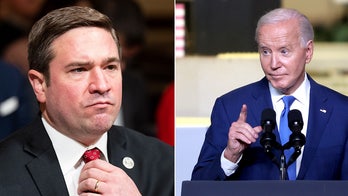WASHINGTON -- A Democratic leader in the House voiced confidence Monday that his side has the votes necessary to pass the health care reform bill, and may do so as early as this week.
"I think the votes are there. I always believed that," said Rep. John Larson of Connecticut, the fourth-ranking Democrat in the House and the Democratic Caucus chairman.
Larson's confidence is a departure from what other senior Democratic leaders have been saying the past few days. The have couched their vote predictions.
"When we bring the bill to the floor, we'll have the votes," House Speaker Nancy Pelosi said.
And the top vote counter in the House, Majority Whip Jim Clyburn, was clear Sunday on NBC's "Meet the Press" that he was still short.
"We don't have (the votes) as of this morning. But we've been working this thing all weekend. We'll be working it going into the week," Clyburn said. The South Carolina Democrat had indicated Friday that "the votes will be there when we vote."
On Monday night, Larson was even more emphatic that the House Democratic leadership had rounded up the votes of wavering lawmakers.
"We have the votes and that's all that matters," Larson said.
Obama voiced confidence Monday, too, but suggested he and other Democratic leaders still had work to do to get the legislation passed.
"I believe we're going to get the votes, we're going to make this happen," the president said in an interview with ABC News. He has traveled to three states and lobbied numerous lawmakers in recent days.
And Sen. Jim DeMint, a Republican who is among the bill's sharpest opponents, said he was "less confident" than before that reform could be stopped.
It was more than a year ago that Obama asked Congress to approve legislation extending health coverage to tens of millions who lack it, curbing industry practices such as denying coverage on the basis of pre-existing medical conditions, and beginning to slow the growth of health care nationally. His plan would require most Americans to buy health insurance, fine most who fail to do so and provide government subsidies to help middle-income earners and the working poor afford it.
Sweeping legislation seemed to be on the brink of passage in January, after both houses approved bills and lawmakers began working out a final compromise in talks at the White House. But those efforts were sidetracked when Republicans won a special election in Massachusetts -- and with it, the ability to block a vote on a final bill in the Senate.
Now, nearly two months later, lawmakers have embarked on a two-step approach that requires the House to approve the measure passed by the Senate, despite misgivings on key provisions. That would be followed by both houses quickly passing a second bill that makes numerous changes to the first. In the Senate, that second bill would come to a vote under rules that deny Republicans the ability to delay it.
The details of the second, fix-it measure that comes after the House vote were closely guarded -- and subject to last-minute changes. In general, officials have said they would provide more money for lower-income families unable to afford health care and states that already provide above average coverage for the poor, as well as improved prescription drug coverage for the elderly.
The Associated Press contributed to this report.




